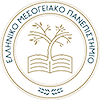The graduate program on Sound and Music Technologies leads to the award of a Master of Science (MSc) degree in Sound and Music Technologies.
The program begun its operation in October 2018 and admits students annually.
Focus
The program focuses on both the latest scientific trends as well as applied knowledge in studying sound as a carrier of information, culture, and entertainment. More specifically, the curriculum is structured in such a way as to approach sound as waves, signals and carriers of information.
It aims at providing student with scientific skills and technological know-how for the development of: a) technical studies related to acoustics b) interactive systems, installations and applications focusing on sound and music, c) intelligent systems making use of semantic information extracted from audio signals d) novel sound design and synthesis techniques, e) applications in the contemporary scientific field of optoacoustics.
Curriculum
The program has a duration of three (3) full-time or six (6) part-time academic semesters. During the first two semesters, full-time students are expected to attend eight (8) compulsory courses. The third semester is devoted to carrying out a research project and writing a thesis. Part-time students must attend eight (8) courses within four semesters, while the diploma thesis may take up to one year. The final project can be conducted in one of the collaborating laboratories in Greece or abroad.
Courses are taught in the premises of the Department at the city of Rethymnon and require physical presence. The program is offered free of tuition fees and therefore students have the status of a scholar and are expected to contribute by supporting the educational activities of the Department.
Courses
Graduate students attend the following compulsory courses:
- Audio Signal Processing: The course focuses on the basic principles of digital signal processing such as pulse code modulation, sampling rate conversion, spectral analysis, digital filters, noise minimization, basic approaches to audio coding/decoding etc.
- Audio Application Programming: The purpose of the course is the development of programming skills for the design of audio and music applications. Students get familiar with the development of applications related to audio capturing and recording, spectral analysis, audio signal extraction, etc. These are implemented using general programming languages such as Python or C and specialized programming libraries (APIs).
- General Acoustics: The course covers in a brief but analytical way the principles of vibrating systems production, reflection, transmission of sound in various media, as well as the emission, scattering and measurement of sound.
- Sound Synthesis: The course introduces students to advanced synthesis and modulation techniques, their implementation with the use of computers and their application to modern music creation.
- Special Topics in Acoustics: The course will focus on individual sections of acoustics such as musical acoustics, structural acoustics, psychoacoustics, transmission and reception of sound from arrays of sources and receivers respectively, electroacoustics and computational acoustics.
- Applied Machine Learning for Sound and Music: The course focuses on cutting-edge technologies and programming tools for the development of intelligent applications involving semantic information inferred from digital audio. The presented techniques focus on inferring music content information as well as sound scene and event detection in the context of developing smart applications and environments.
- Sound and Movement: The course covers topics on the intersection of music and human movement. In this course students have the opportunity to familiarize themselves with theories of embodied music cognition and perception as well as multimodality in audio interaction. The aim is for students to develop skills in (a) analyzing audio and motion data to find correlations, (b) developing interactive sound systems in which motion controls and drives the sound.
- Optoacoustics: In this course students will familiarize with a contemporary field of global interest and acquire both theoretical and practical knowledge on topics such as the detection of sound with optical methods, the development of sound sources by strong coherent light, the various applications of optical methods in musical acoustics, the acoustics of the microworld (micro- and nano-acoustics) etc.
